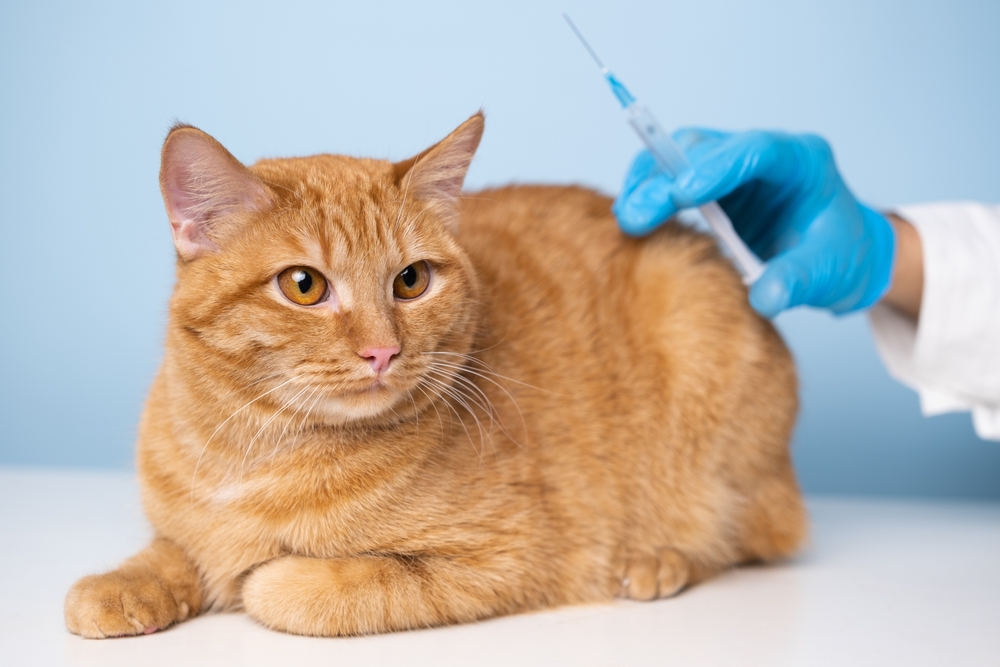
Vaccines play a crucial role in maintaining your cat's overall health, ensuring that they are protected from numerous diseases that can affect their well-being. Vaccines are not only beneficial for your pet but also for you and your family, as some diseases can be transmitted from animals to humans. The world of pet vaccines can be quite daunting, especially for new pet owners. With so many vaccines available, it can be challenging to know which ones your cat needs.
The Importance and Benefits of Vaccinating Your Cat
One of the key benefits of vaccinating your cat is disease prevention. Vaccines dramatically reduce the risk of your cat contracting severe, life-threatening diseases. By keeping your pet healthy, vaccines also save you the cost and emotional distress associated with treating these diseases. Additionally, vaccines contribute to the overall feline population health by reducing the prevalence of certain diseases. When a significant percentage of the cat population is vaccinated against a specific disease, the disease has less chance of spreading; this is known as herd immunity. Lastly, some vaccines protect humans from diseases that can be transmitted from animals.
What Vaccines Does My Cat Need?
Core vaccines for cats are those that every cat, regardless of their lifestyle or location, should receive. The first main core vaccine for cats is called a FVRCP shot, which stands for Feline Viral Rhinotracheitis, Calicivirus, and Panleukopenia. This combination shot is a 3-year vaccine and protects against three core viruses affecting cats. Feline Panleukopenia (FPV), also known as feline distemper, is a highly contagious and deadly disease in cats, while Feline Viral Rhinotracheitis (FVR) and Feline Calicivirus (FCV) are the primary causes of upper respiratory infections in cats. The Rabies vaccine is also considered a core vaccine due to public health implications. Rabies is a viral disease that affects the central nervous system, leading to a gruesome death if not treated immediately after exposure, and can be transmitted to humans through the bite of an infected animal.
Non-core Vaccines for Cats: Are They Necessary?
In addition to core vaccines, there are non-core vaccines for cats. These vaccines are not necessary for every cat but might be beneficial depending on the cat's lifestyle and environment. The only non-core vaccine for cats is Feline Leukemia Virus (FeLV). Cats that spend time outdoors or live with cats that go outdoors will benefit from this vaccine. The virus can be spread by mutual grooming and close contact or exposure to unvaccinated cats. However, it's always best to consult with your vet to determine which, if any, non-core vaccines your cat should receive.
The Schedule for Cat Vaccinations
Knowing the schedule for cat vaccinations is essential to ensure that your cat is adequately protected against diseases. As a kitten, your cat should start receiving the FVRCP vaccine at 6-8 weeks of age, with booster shots every 3-4 weeks until they are 16 weeks old. They will then need a booster one year later and then every three years. The Rabies vaccine is usually first given when the kitten is around 12 weeks old, with a booster one year later and then every one to three years, depending on the product used and local regulations. We recommend one FeLV vaccine for every kitten followed by doses as necessary depending on their lifestyle and risk of exposure.
Ensuring Your Cat’s Health with Timely Vaccines
Ensuring that your cat receives the necessary vaccines is a crucial part of responsible pet ownership. Vaccines not only protect your cat from severe diseases but also contribute to the overall health of the feline population and protect against zoonotic diseases. By understanding the core and non-core vaccines for cats, you can ensure that your cat is protected, promoting their health and longevity.
If you have any questions or concerns about vaccinations for your cat, consult our professionals for expert advice and guidance. Contact True Animal Vet, conveniently located in the heart of The Woodlands, Texas. We are committed to providing quality pet care services to all our clients in The Woodlands area. Schedule an appointment today by calling 281-867-5968 or registering online.










